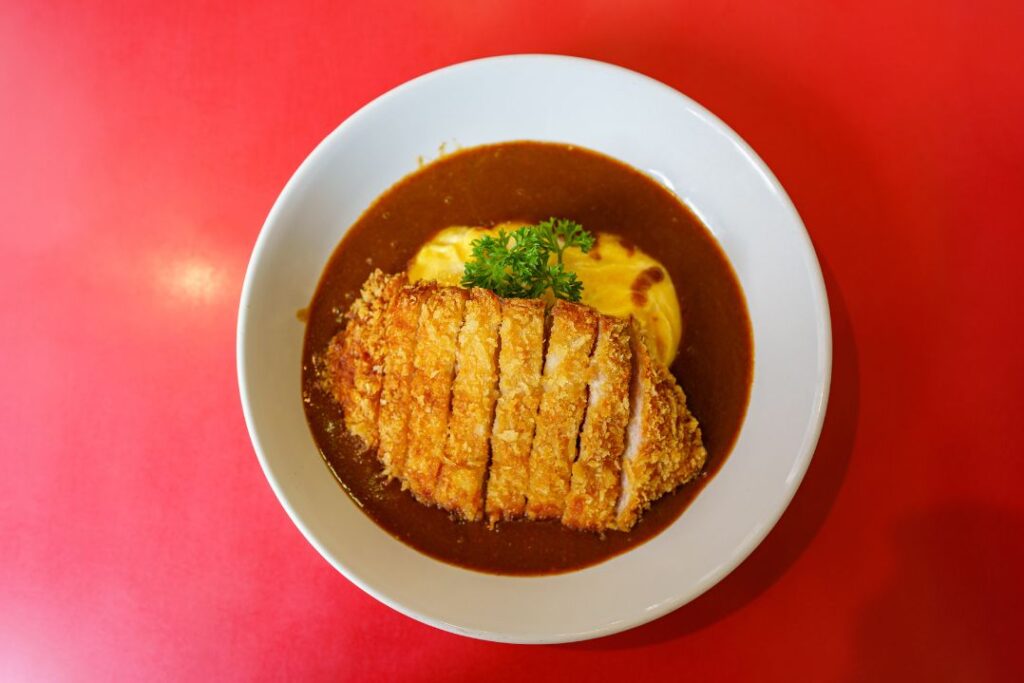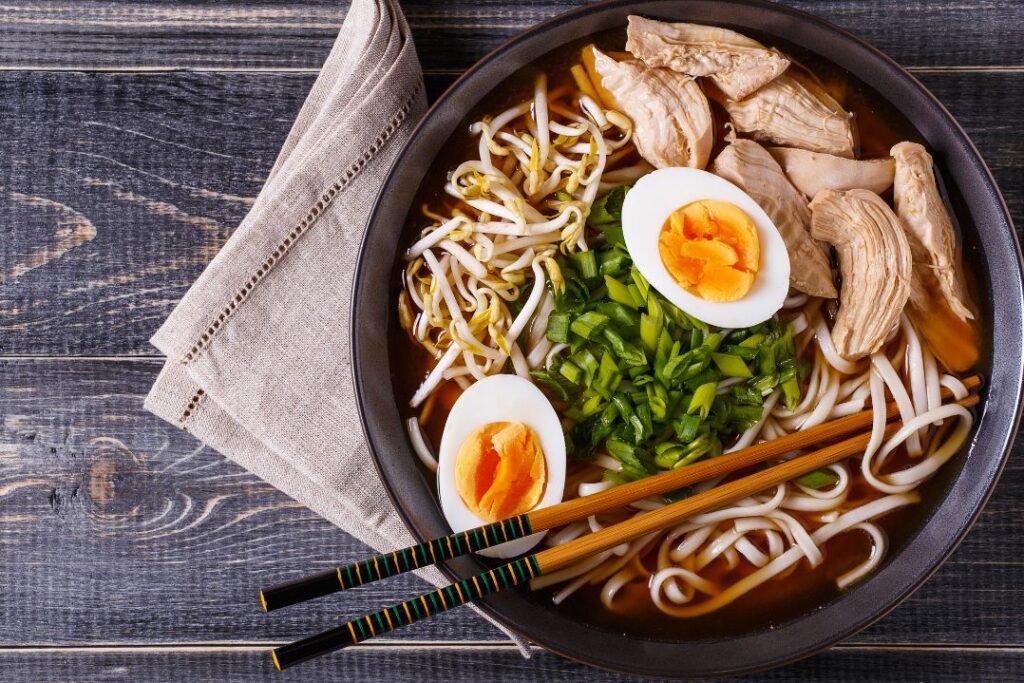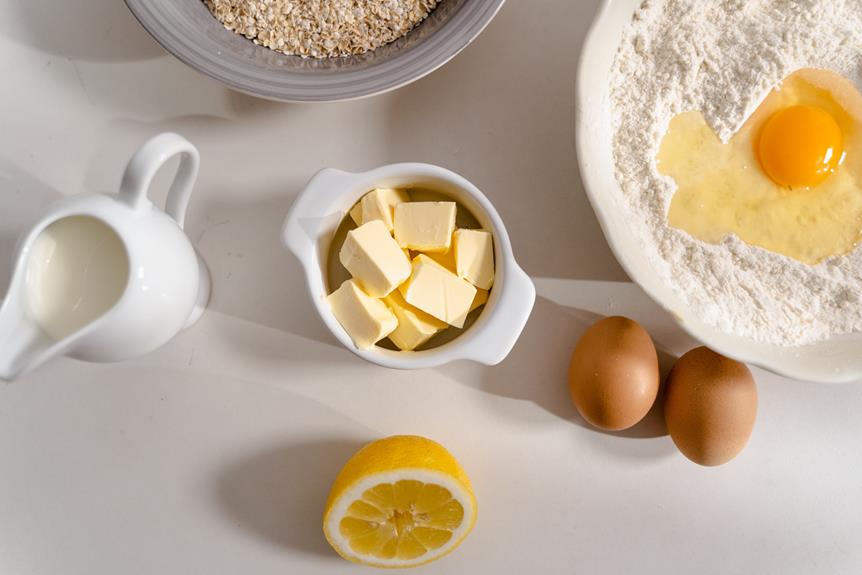Unlock the tasty secrets behind the amazing flavors of Japanese dishes by exploring the role of eggs in Japanese cooking.
In the world of Japanese cooking, eggs are like the secret sauce that elevates every dish to another level. Whether it’s the silky texture of tamagoyaki or the rich depth of flavor in a steaming bowl of ramen, eggs are the unsung heroes of Japanese cuisine, adding that extra oomph to every bite.
But its significance goes beyond taste – it holds a historical prominence that has been cherished for generations. Join us as we delve into the rich traditions and cultural impact that this unassuming ingredient brings to Japan’s culinary landscape.
Prepare to be amazed as we uncover the many faces of the egg and why it is truly a cornerstone of Japanese cuisine.
Historical Significance
Eggs have long played a pivotal role in Japanese cuisine, dating back centuries to when they were first introduced as a versatile ingredient. You’ve likely noticed their prominence in dishes ranging from the delicate tamagoyaki to the hearty katsudon. But to truly harness the power of eggs in your cooking, understanding their historical significance is key.
Centuries ago, Japanese chefs recognized eggs’ unique ability to bind flavors, enrich textures, and enhance the nutritional value of meals. This wasn’t just about making food more delicious; it was a strategic move to utilize available resources efficiently.
You, too, can apply this wisdom. By incorporating eggs into your dishes, you’re not just following a recipe; you’re tapping into a long tradition of maximizing the potential of simple ingredients.
Mastering the use of eggs in Japanese cooking allows you to control the quality and authenticity of your dishes. Whether you’re whipping up a quick omelet or a complex ramen broth, remember that every egg you crack open connects you to centuries of culinary innovation. Embrace this connection, and let it guide you to create meals that aren’t only satisfying but also steeped in history.
Nutritional Value
Beyond their role in culinary traditions, eggs offer a wealth of nutrients that can bolster your health and vitality. Packed with high-quality protein, they’re a powerhouse for muscle repair and growth. You’ll find that incorporating eggs into your diet can significantly contribute to your physical strength and energy levels.
Eggs are also rich in vitamins, including Vitamin D, which is crucial for bone health and immune function. They’re one of the few food sources that naturally contain this essential vitamin, giving you a clear path to safeguarding your well-being.
Moreover, the presence of B vitamins aids in energy production and the maintenance of healthy skin and eyes.
Don’t overlook the importance of minerals found in eggs, such as zinc and selenium. These elements play vital roles in your body’s defense system, helping you to fend off illnesses. Zinc, for instance, is known for its ability to support healing, while selenium acts as a powerful antioxidant.
Taking control of your nutrition means making informed choices about what you eat. By understanding the nutritional value of eggs, you’re equipped to make decisions that align with your health goals, ensuring you’re not just eating, but nourishing your body.


Culinary Versatility
From breakfast omelets to sophisticated soufflés, you’ll find that the culinary versatility of eggs knows no bounds. Dive into the world of Japanese cooking, and you’ll unlock even more potential. Eggs aren’t just an ingredient; they’re a transformative element that you can wield to elevate your dishes from good to unforgettable.
Think about the silkiness of chawanmushi, a savory egg custard that encapsulates the essence of umami. You’re not just eating an egg dish; you’re experiencing a delicate balance of flavors that only eggs can achieve.
Or consider tamagoyaki, the slightly sweet, layered omelet that’s as much a pleasure to make as it’s to eat. Here, your skill turns simple eggs into a testament to culinary finesse.
But it doesn’t stop with these dishes. You can use eggs to thicken sauces, enrich broths, or even as a binding agent in meatballs or sushi.
The control is in your hands. With eggs, you’re not following the recipe; you’re defining it. Their versatility isn’t just a facet of Japanese cooking; it’s a canvas, and you’re the artist.
Embrace it, and let your culinary creativity soar.
Iconic Egg Dishes
Exploring Japanese cuisine reveals a bunch of iconic egg dishes that wow both your taste buds and your mind. You’re the boss, turning basic stuff into amazing meals.
Take Tamagoyaki, a sweet or savory rolled omelet, where your technique shapes its layers, texture, and flavor. Mastery of this dish elevates your breakfast or bento box, showcasing your culinary prowess.
Then there’s Okonomiyaki, a savory pancake where you wield creativity. Eggs bind the batter, and you choose the mix-ins – anything from seafood to pork belly, topped with tangy sauces. Your version could be the talk of the table, a testament to your ability to balance flavors and textures.
Don’t overlook Chawanmushi, a testament to your precision and patience. This savory egg custard, steamed to silky perfection, gently carries flavors of chicken, shrimp, and shiitake mushrooms. Your care in seasoning and timing results in a dish that’s both comforting and elegant.
Lastly, Ramen’s Ajitsuke Tamago – a soft-boiled egg marinated in soy sauce and mirin, offers a simple yet profound way to enhance a bowl. Your choice of marination time defines its flavor depth, adding a personal touch to this beloved noodle soup.
Each dish offers you control over complexity, taste, and presentation. Embrace the challenge, and let your culinary skills shine through these iconic egg creations.


Cultural Impact of Eggs in Japanese Cooking
Throughout history, eggs have played a pivotal role in Japanese culture, symbolizing both nourishment and artistry in the culinary world. This isn’t just about food; it’s about the essence of a nation’s identity and your opportunity to engage deeply with this rich tradition. Eggs aren’t merely ingredients; they’re a bridge to understanding the Japanese way of life.
You’ll find that mastering dishes like tamagoyaki requires precision and control, reflecting the meticulous nature of Japanese cuisine.
It’s a skill that demands respect for the process and the product, mirroring values deeply ingrained in Japanese society. You’re not just cooking; you’re embracing a philosophy that balances simplicity with complexity, where every detail counts.
The inclusion of eggs in festivals and celebrations further highlights their cultural significance. They’re not just part of the menu; they’re a symbol of life and renewal, themes that resonate with the Japanese ethos.
By incorporating eggs into your culinary practices, you’re not just expanding your palette; you’re weaving a thread into the fabric of a culture that values harmony, respect, and refinement.
Understanding this impact empowers you to approach Japanese cooking with a sense of reverence and responsibility, transforming your kitchen into a space where culture and cuisine coalesce.
Conclusion
In conclusion, it’s important to acknowledge that there may be some who argue against the essential role of eggs in Japanese cooking. While eggs certainly have a long-standing presence in the cuisine, there could be alternative perspectives on their significance.
If you have a different opinion or would like to share your thoughts, please feel free to leave a comment below. Your input is valuable and contributes to a diverse and engaging discussion.




Konnichiwa! (Hello!) I'm Pat Tokuyama, a Japanese tofu cookbook author, who travels for music, food, and adventure. If you like Japanese tea, checkout some of the newestorganic japanese tea, matcha bowls and noren and more!
** Curious about the Plant Based Japanese Cooking Club? ** Learn more here!